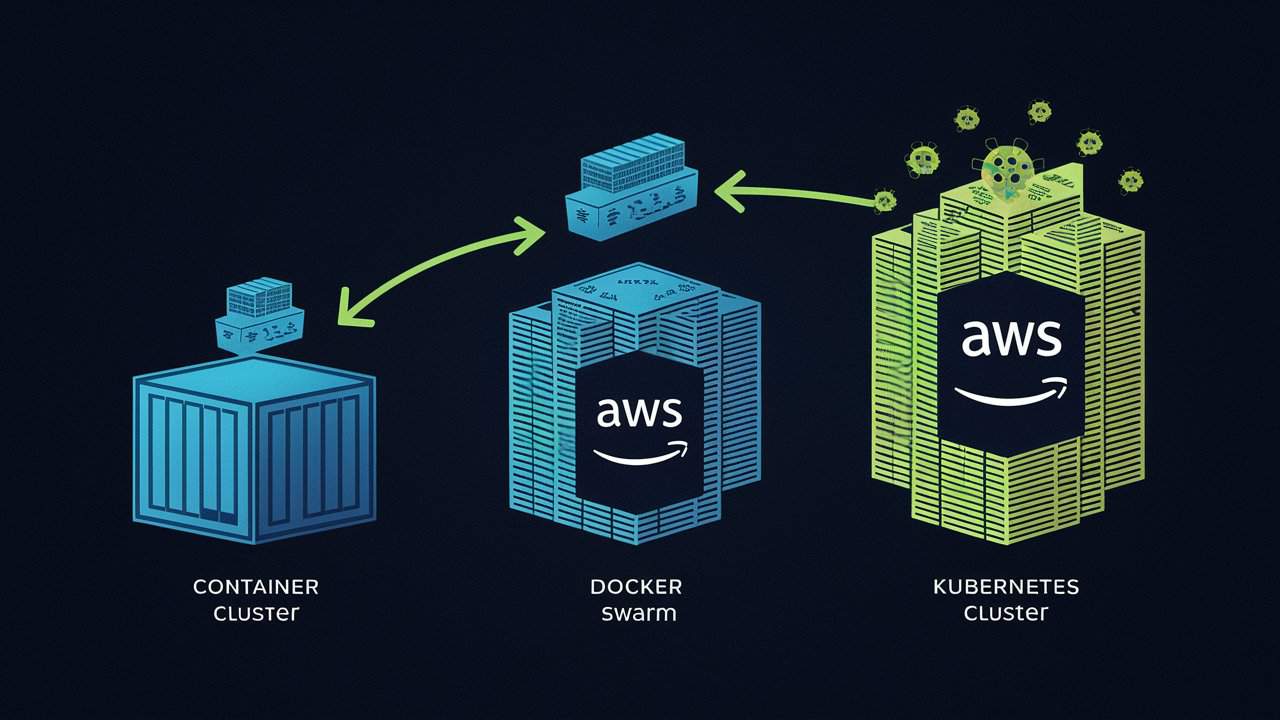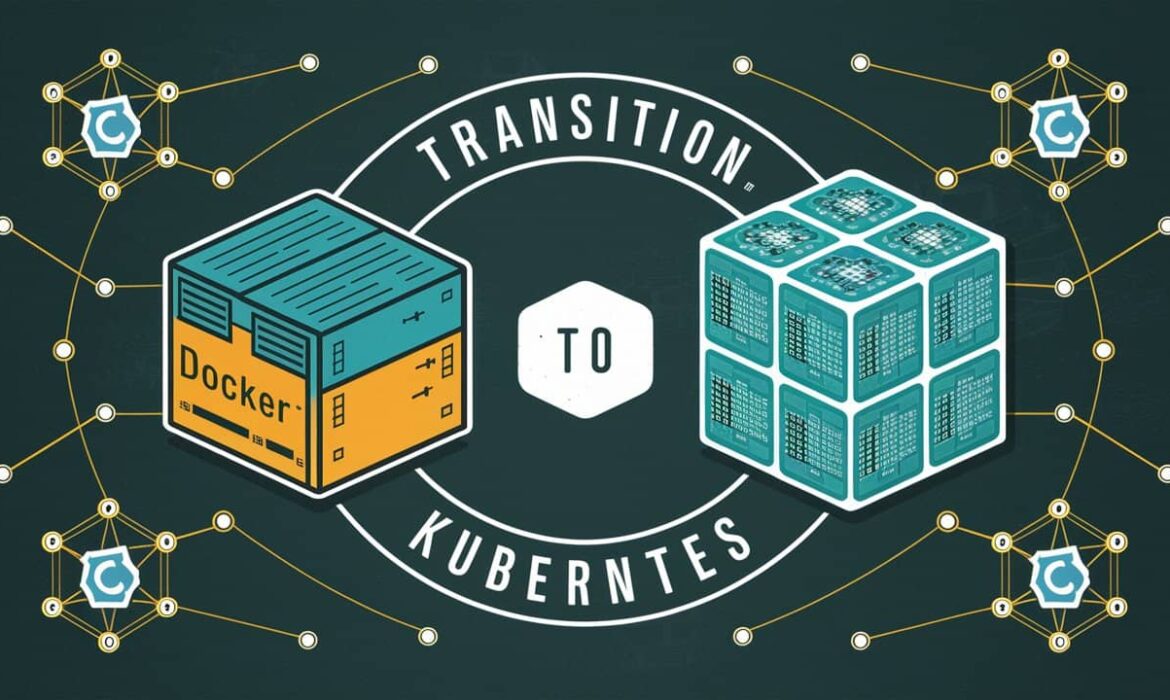Understanding the Docker-Kubernetes-AWS Ecosystem
The Docker-Kubernetes-AWS ecosystem forms a robust foundation for modern cloud operations. Docker streamlines the packaging and deployment of applications by containerizing them, ensuring consistent environments across different stages of development. Kubernetes, an orchestration tool, takes this a step further by automating the deployment, scaling, and management of these containers, providing resilience and high availability through features like self-healing and load balancing.
Integrating this with AWS amplifies the ecosystem’s capabilities. AWS offers scalable infrastructure and managed services that complement Kubernetes’ automation, like Amazon EKS (Elastic Kubernetes Service), which simplifies Kubernetes deployment and management. This trio enables organizations to build, deploy, and manage applications more efficiently, leveraging Docker’s portability, Kubernetes’ orchestration, and AWS’s extensive cloud infrastructure. Together, they create a seamless, scalable, and resilient environment that is crucial for cloud-native applications.
Why is Kubernetes the Next Step After Docker on AWS?
After mastering Docker on AWS, Kubernetes emerged as the natural progression for scaling containerized applications. While Docker simplifies container management, Kubernetes takes it further by orchestrating these containers at scale, providing advanced features like automated scaling, self-healing, and seamless rollouts. This level of automation is essential for handling complex workloads in a dynamic cloud environment like AWS, where demands can shift rapidly.
Kubernetes also offers a significant advantage over Docker Swarm in terms of flexibility and resilience. With Kubernetes, you can deploy multi-region, multi-cloud applications effortlessly, ensuring high availability and fault tolerance. Its robust ecosystem, including Helm for package management and integrated CI/CD pipelines, streamlines cloud operations, reducing manual interventions and minimizing downtime. In an AWS environment, Kubernetes leverages services like Amazon EKS, enabling you to manage clusters with AWS-native tools, which enhances security, compliance, and cost efficiency.
In summary, Kubernetes on AWS empowers cloud operations teams with unparalleled control, scalability, and efficiency, making it the logical next step after Docker for enterprises aiming to optimize their cloud-native architectures.

Container Orchestration Simplified: How Kubernetes Enhances Docker Workloads
Container orchestration is pivotal for scaling and managing containerized applications, especially in cloud environments. Kubernetes, an open-source platform, simplifies this by automating the deployment, scaling, and management of Docker containers. It acts as a robust control plane, ensuring that containerized applications run seamlessly across clusters, regardless of underlying infrastructure.
In cloud operations, Kubernetes enhances Docker workloads by providing resilience, scalability, and efficient resource utilization. It automatically handles load balancing, self-healing, and rolling updates, ensuring minimal downtime and consistent application performance. By abstracting the complexity of managing multiple containers, Kubernetes allows cloud teams to focus on application development rather than infrastructure management.
Moreover, Kubernetes integrates smoothly with cloud services like AWS, GCP, and Azure, offering built-in tools for monitoring, logging, and security. This integration ensures that cloud-native applications can scale effortlessly, adapt to changing demands, and maintain high availability, making Kubernetes an indispensable tool for modern cloud operations.
Efficient Application Scaling for Cloud Developers with Docker, Kubernetes, and AWS
Efficient application scaling is vital for cloud developers, and integrating Docker, Kubernetes, and AWS offers a robust solution. Docker streamlines application deployment by encapsulating it in lightweight containers, ensuring consistent performance across different environments. These containers can be easily scaled up or down based on real-time demand, simplifying the management of varying workloads.
Kubernetes enhances this process by orchestrating these containers at scale. As an open-source platform, Kubernetes automates deployment, scaling, and operational management of containerized applications, allowing developers to concentrate on development rather than infrastructure. When paired with AWS, Kubernetes benefits from the cloud provider’s comprehensive ecosystem, including Elastic Kubernetes Service (EKS), which facilitates seamless cluster management.
AWS further supports scalable cloud operations with Auto Scaling and Elastic Load Balancing. These services automatically adjust resources to match traffic fluctuations, maintaining application responsiveness and optimizing cost efficiency. Together, Docker, Kubernetes, and AWS provide a cohesive framework for efficient, scalable cloud management.
Streamlined CI/CD Pipelines: Leveraging Kubernetes in Your Docker-Based AWS Environment
Streamlined CI/CD pipelines are essential for optimizing cloud operations, particularly when integrating Kubernetes with Docker in an AWS environment. Kubernetes automates the deployment, scaling, and management of Docker containers, making it easier to manage complex applications. This orchestration simplifies updates, enhances rollback capabilities, and minimizes downtime, ultimately boosting operational efficiency.
In AWS, combining Kubernetes with Docker leverages the full power of scalable, resilient infrastructure. Services like Amazon EKS (Elastic Kubernetes Service) manage Kubernetes clusters, allowing you to focus on application development rather than infrastructure maintenance. This integration fosters a more agile development process, accelerating time-to-market while ensuring high availability and performance. By aligning your CI/CD practices with these technologies, you achieve a more efficient and reliable cloud operation, meeting the demands of modern software delivery.
Optimizing Docker Swarm and Kubernetes on AWS: Key Takeaways
Optimizing Docker Swarm and Kubernetes on AWS can significantly enhance cloud operations, leading to more efficient resource utilization and streamlined deployments. Docker Swarm’s simplicity is a strong advantage for managing containerized applications. Leveraging AWS features such as Elastic Load Balancing (ELB) and Auto Scaling with Docker Swarm can ensure high availability and dynamic scaling. Utilizing AWS Fargate with Docker Swarm can further optimize operations by removing the need for managing underlying infrastructure, thereby reducing overhead and simplifying management.
On the other hand, Kubernetes provides more advanced orchestration capabilities and is ideal for complex, microservices-based applications. AWS EKS (Elastic Kubernetes Service) integrates seamlessly with Kubernetes, offering managed control plane operations, which simplifies cluster management and scales effortlessly with demand. To optimize Kubernetes on AWS, leverage AWS CloudWatch for monitoring and AWS IAM for fine-grained security controls. Combining Kubernetes’ robust orchestration with AWS’s scalable infrastructure ensures resilient, cost-effective, and highly available cloud operations.






